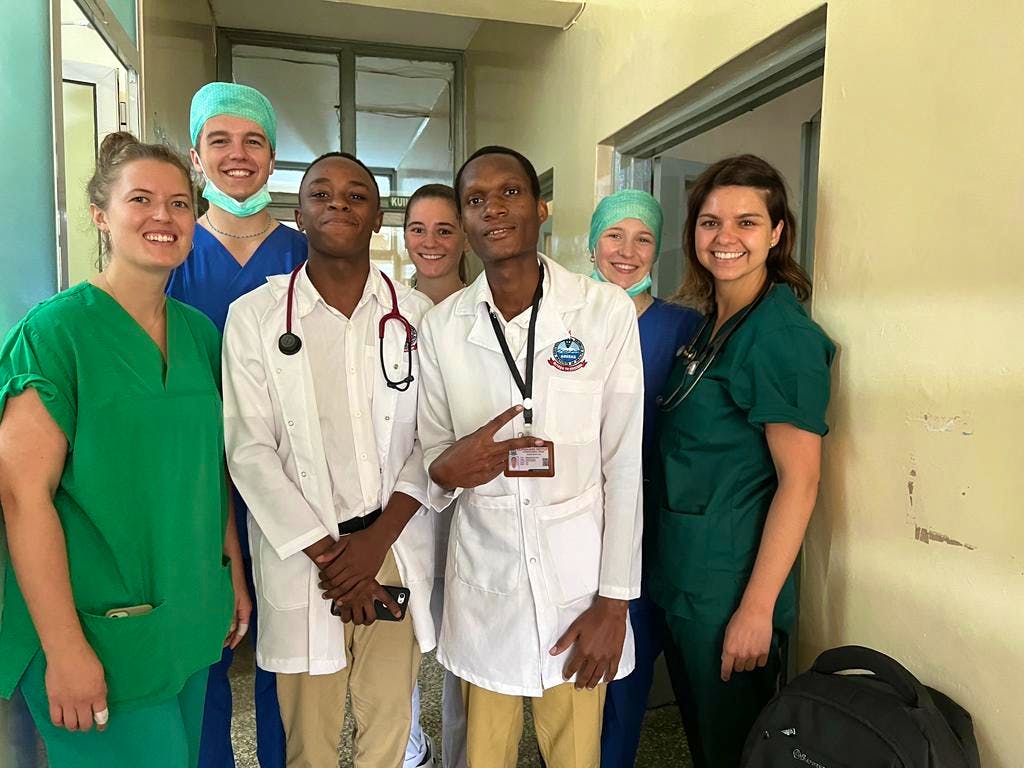Community health care volunteer project

The Healthcare Volunteer Program in Tanzania, organized by the Endangered Species Conservation Foundation (ESCF), provides a unique opportunity for volunteers to engage directly in both healthcare and wildlife conservation efforts. Here is a comprehensive overview of the program:
Overview of the ESCF
The Endangered Species Conservation Foundation (ESCF) aims to combine wildlife protection, community engagement, and education for sustainable impact. The foundation is involved in various ecological and educational projects, planning to enable volunteers to contribute to both healthcare and conservation initiatives.
Healthcare and Medical Volunteer Programs
The healthcare volunteer programs are primarily situated around Kilimanjaro Region, which is known for its proximity to national parks and wildlife. Volunteers can work in medical clinics, dispensaries, and hospitals, contributing to local healthcare provision.
Key Features of the Healthcare Volunteer Program:
- Diverse Role Opportunities: Volunteers can take on different roles based on their expertise:
- Pre-Medical Students: Assist local doctors with basic clinical tasks such as taking vitals, cleaning wounds, and engaging in administrative duties.
- Medical Students and and Professionals: Participate in more complex tasks, which may include checking blood pressure, assisting in surgical procedures, and working in specialized departments like gynecology or pediatrics.
- Daily Work Schedule: The volunteering is generally structured around 5-6 hours a day for five days a week. The schedule is flexible, adapting to the needs of the specific healthcare facilities.
- Cultural and Community Engagement: Volunteers are encouraged to engage with the local communities through educational programs and public health initiatives, thereby enhancing their cultural experience and promoting health awareness.
- Support and Coordination: The ESCF provides support to volunteers, including orientation sessions to prepare them for their roles in the community. Volunteers are accommodated in local facilities, which helps them adapt and integrate into the local environment.
Benefits of the Program
- Skill Development: Participants gain practical experience in their fields while also developing soft skills like teamwork and cultural sensitivity.
- Impactful Contribution: Volunteers contribute to improving healthcare access and quality in under-served communities in remote villages bordering national parks and game reserves, while simultaneously aiding wildlife conservation efforts, as many projects address the health impacts of environmental factors on populations.
- Cultural Immersion: Volunteers immerse themselves in Tanzanian culture, contributing to community needs while experiencing the rich heritage of the Tanzanian people.
Conclusion
The Healthcare Volunteer Program by ESCF in Tanzania is a unique initiative that allows individuals interested in both healthcare and conservation to make a tangible impact. With opportunities ranging from hands-on medical work to community education in health and conservation, volunteers can play a crucial role in supporting Tanzania's healthcare system while promoting wildlife conservation strategies. For more details, prospective volunteers can contact ESCF's official Contact us Page. Collaborate with ESCF now!